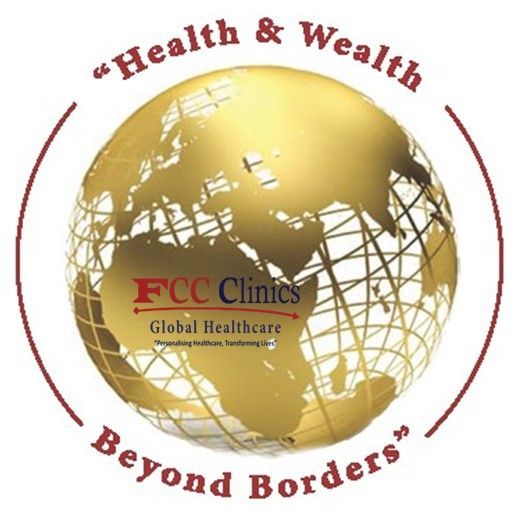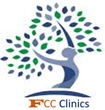Therapy For Veterans
Studies have shown that the rates of mental illness amongst UK veteran is slightly lower than that of the wider UK population. The rate is currently about one in five (1:5) veterans as opposed to one in four (1:4) of the general population who suffer from mental illness.
It is however shown that when specific mental health conditions are considered, the reverse is the case. For example, UK veterans are twice (x2) more likely to develop delayed-onset PTSD than someone in the general population. The Veterans' PTSD is shown to often present within the first year of leaving the force (IAPT, 2009).
Due to the high tension and traumatic environment in which active military combatants serve, veterans are significantly at risk of developing some physical injuries and psychological health difficulties. The following are some of the common mental (psychological) health difficulties that tend to affect military personnel:
- Post-traumatic Stress Disorders (PTSD)
- Anxiety
- Depression
- Traumatic Brain Injury (TBI)
PTSD IN VETERANS
Post-traumatic stress Disorder (PTSD) is a form of anxiety that develops after an individual is exposed to an extremely traumatic or overwhelming life experience. Generally, after experiencing a stressful event, the human body tends to return to baseline levels, but for the people with PTSD, their body continues to release stress-related hormones especially Cortisol and Adrenaline . Though traumatic incident(s) must occur for a person to develop PTSD, not all traumatic experiences result in posttraumatic stress. Only a small percentage of people who go through trauma end up developing PTSD.
Studies showed that military personnel are at higher risk for developing post-traumatic stress because service members are intimately involved in wartime incidents that may be frightening, and at times, life-threatening. PTSD may occur as a result of one incidence or series of incidences such as participating in combat, experiencing sexual abuse, or having a car accident. One emotionally overwhelming incident may be enough for PTSD to develop, and combat environment is shown to expose veterans to prolonged and repeated traumatic events.
Post-traumatic stress Disorder is characterized by four basic types of symptoms which would have lasted for six moths or more:
1. Reliving the event
- Repeatedly experiencing the event in flashbacks
- Having intrusive, repeated, and upsetting memories of the event
- Regularly having nightmares about the event
- Having intense and discomforting reactions to objects or situations that remind you of the event
2. Avoidance
- Staying away from people, places, or even thoughts that remind you of the event
- Emotional numbness
- Feelings of detachment
- Memory problems
- Loss of interest in everyday activities
- Being emotionally guarded
- Feelings of hopelessness
3. Hyperarousal
- Constantly scanning the surroundings for any signs of danger
- Problems concentrating
- Increased irritability
- Being easily startled
- Erratic sleep patterns
4. Negative thoughts, moods, or feelings
- Feeling guilty about the event
- Criticizing or blaming other individuals for the event
- Loss of interest in activities and people
DEPRESSION AND ANXIETY IN VETERANS
Mental health difficulties such as depression and anxiety, are shown to be prevalent among military veterans.
There are different contributing factors to the Veterans' anxiety and depression and some of them are:
- Poor health (physical and mental),
- Unemployment,
- Financial difficulties
- uncertainty of the future
- grief of losing friends during combat
- feelings of survivor’s guilt
When they returned from deployment, some veterans report feeling disconnected from family members and friends. The belief that no one is able to relate to their experiences or offer meaningful emotional support can prompt some veterans to bottle up their feelings or even seek social isolation. Such actions often worsen, rather than make the situation better.
TRAUMATIC BRAIN INJURY (TBI) IN VETERANS
Traumatic Brain Injury (TBI)is currently one of the most discussed topics in the medical and mental health communities, as many veterans have returned home with the symptoms of the condition.
Traumatic brain injury may be caused by:
- a blow to the head,
- the head striking an object, or
- an explosion in close proximity.
For people who experience a brain injury, they may:
- become confused, and/or disoriented,
- experience slow or delayed thinking, and
- may slip into a coma.
- may have memory loss of events preceding and immediately following the injury.
- Other symptoms associated with TBI are headaches, dizziness, and difficulty paying attention.
- In some cases, traumatic brain injury can result in:
- physical deficits,
- behavioural changes,
- emotional deficiencies, and
- loss of cognitive ability.
SEXUAL ABUSE TRAUMA IN VETERANS
Sexual trauma (ST)is described as “sexual harassment that is threatening in character or physical assault of a sexual nature ...., regardless of geographic location of the trauma, gender of the victim, or the relationship to the perpetrator".
Some studies suggested that:
- Approximately 1% of veteran males and 22% of veteran females are exposed to sexual assault or repeated sexual harassment during their military service.
- Between 10% and 33% of servicewomen may experience attempted rape during this time period.
- The prevalence rates of the sexual trauma may range from 4% to as high as 85% based on the method of data collection and the definition of Sexual Trauma used.
There are a variety of emotional, behavioural, physical, and mental health issues that have been linked to Sexual Trauma:
- Depression,
- Post-traumatic stress,
- Anxiety,
- Substance dependency
- Body Dysmorphia
- Self-Harm
- Increased risk of suicide.
Studies also showed that about 50-60% of female veterans who experience ST eventually develop post-traumatic stress. This rate is approximately three times higher than male veterans in similar circumstances.
Of servicewomen who develop PTSD due to sexual trauma,
- 75% develop co-morbid depression, and
- over 30% may develop anxiety.
Servicemen who experience post-traumatic stress due to exposure to Sexual trauma are more likely to abuse alcohol, drugs, and other substances than servicewomen who have experienced similar trauma.
Due to fear of being stigmatised, may Veterans who have experienced sexual trauma do not feel free or safe to discuss their experience, hence the traumas are often not dealt with and the victims tend to suffer in silence.
According to some studies, sexual harassment was the only stressor that was independently linked to suicidal ideation among female veterans—even when accounting for depression and the misuse of alcohol.
OTHER MENTAL HEALTH DIFFICULTIES
While post-traumatic stress, depression, anxiety, and traumatic brain injury are at the forefront of the veterans' mental health difficulties, there are other mental health conditions that warrant attention. These include:
- Drugs and alcohol abuse
- Suicidal ideation
- Anger issues
- Sleep apnoea
People who serve in the military will not necessarily develop a mental health condition. likewise, a mental health difficulty experienced by a veteran may have no relation to the veteran's service.
This is the reason why at FCC Clinics, we take all symptoms and life experiences of each Veteran into consideration and tailor our assessment and care-plan to each veterans peculiar situation.
THERAPY FOR VETERANS
The management of the Veteran's physical and psychological problems is often a multi-disciplinary effort. This may take place in various settings: short-term inpatient care, outpatient care in a psychosocial rehabilitation and recovery center, or residential care. Many of the veterans with mental health difficulties of PTSD may require medications such as antidepressant, anti-anxiety, and mood-stabilizing prescribed by their GP or psychiatrist. These medications help to bring under control many of the symptoms of depression and anxiety, reduce irritability, improve sleep patterns, and help to ease nightmares or intrusive thoughts.
Psychotherapy is highly recommended as either a stand-alone or as combined -therapy with medication. Therapy helps the Veterans to deal with the underlying causes of the mental health difficulties.
In FCC Clinics we provide specialist therapy using therapeutic approaches such as:
- Cognitive behavioral therapy,
- Acceptance Commitment therapy (ACT),
- Dynamic Interpersonal Therapy (DIT)
SUPPORT AND THERAPY FOR MILITARY FAMILIES
- Military life and deployment can take a toll on each member in the family system. Children and teenagers may become irritable or rebellious, and the parent at home may have to cope with the increased burden of caring for the family alone on a daily basis. Deployment can lead family members to feel anxious, alone, or unsupported.
- Military families also have to face the possibility that the deployed family member may return seriously injured or may not return at all. A family who is out of touch with extended family members or the military community may be more likely to experience increased stress during this period.
- While happiness and relief may often be experienced when a deployed family member returns home, initial joy might give way to feelings of frustration as issues associated with reintegration arise. The returning parent may have experienced personality changes or developed mental or physical heath difficulties, children may have been born or reached a different stage of development, and marital bonds may have weakened. The need to readjust to new roles within the family system may lead to increased tension between family members.
At FCC Clinics,
- We provide Family therapy to help parents explain the deployment process to young children and the other family members.
- We also provide therapy to help returning veterans and their family members go through the reintegration process.
UNUSED RESOURCES AVAILABLE TO VETERANS
Of all veterans who have a mental health concern, studies showed that about 60% of them do not seek assistance from a mental health professional. Studies also indicated that approximately 70% of veterans with post-traumatic stress or depression do not seek help.
Surveys conducted among veterans experiencing mental health challenges have highlighted the following as some of the reasons for the under-utilization of available resources:
- Fear of being stigmatised within the military community
- Fear of confronting trauma
- Constrained access to care (due to location or wait time)
- Belief that friends and family are able to provide all needed care
- Lack of knowledge of available mental health resources
- Lack of knowledge in how to access available mental health care
If you are experiencing any of the issues discussed here or others, please contact us and we will book you for therapy within 3 working days.





